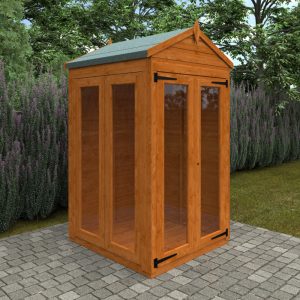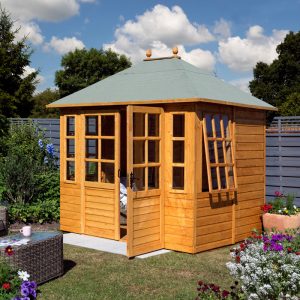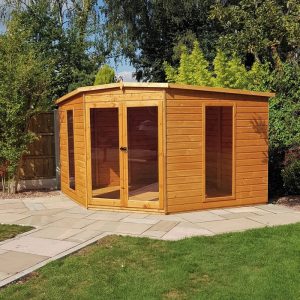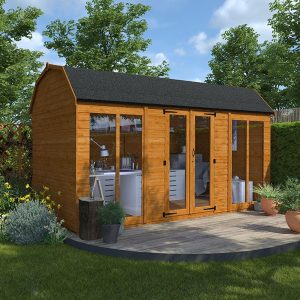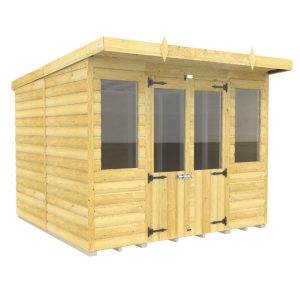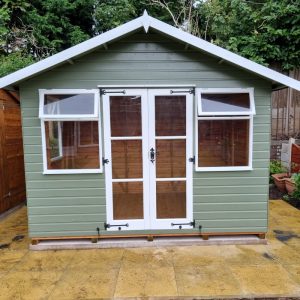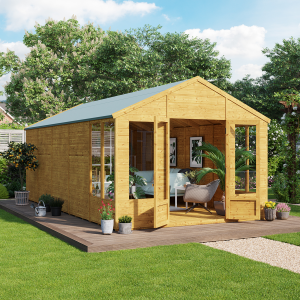The Sprightly 7′ x 7′ Rowan Corner Summer House exhibits a charming design garden structure that can function as a retreat, creative space, or simply as an appealing garden shelter, fitting snugly in a garden nook. Inclusive within this summer retreat are two styrene windows and double doors with full glass panes, accompanied by a slight extension to shield from direct sunlight on a scorching summer day. The establishment is crafted from 12mm ship-lap planks over a robust 34mm framework. The base consists of interlocking tongue and groove planks while the roof is made from a durable sheet OSB. All wood is certified sustainably procured. The summer house is initially treated with a honey-brown coating.









